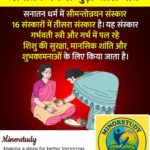🌧️ 5 Powerful Steps to Avoid Illness After Rain – Smart Health Tips That Truly Work
Rain brings a refreshing relief from the heat, fills the earth with fragrance, and refreshes the environment—but getting wet unexpectedly can also trigger a cascade of health issues. From the common cold to serious infections, a sudden soak in the rain can turn your romantic walk into a visit to the doctor’s clinic—if you don’t act quickly and wisely.
- 🌦️ Brief Introduction – Why Rain Is Both a Blessing and a Risk
- ⏳ Timeline of Risk After Getting Wet in the Rain
- 💡 Top 5 Things To Do Immediately After Getting Wet in the Rain
- 1. 👕 Change Wet Clothes Immediately
- 2. 🚿 Take a Bath with Lukewarm Water
- 3. 🍵 Drink a Hot Herbal Decoction (Kadha)
- 4. 💇 Dry Your Hair Thoroughly
- 5. 😷 Keep Your Nose, Ears & Head Covered
- 🧠 Science Behind These Actions
- 🙋 FAQs – Common Questions About Getting Wet in the Rain
- 🎯 Significance in Daily Life
- 🌿 Cultural Observance and Practices
- 💬 Wishing for Wellness
- 📌 Important Points to Remember
- 🌈 Conclusion – Stay Joyful, Stay Protected
So, what should you do immediately after getting wet in the rain?
This article explains 5 life-saving tips, their scientific logic, significance, timelines, FAQs, health observance, and positive daily impact, all written in a warm, human-centric tone, with over 1200+ words for your safety and knowledge.
Read More Articles: https://minorstudy.com/bhanubhakta-acharya-ji/
🌦️ Brief Introduction – Why Rain Is Both a Blessing and a Risk
Rain is beautiful. But sudden exposure to cold rainwater can disrupt your body temperature, weaken immunity, and expose you to viruses and bacteria. Especially during the monsoon season, stagnant water and increased humidity create a breeding ground for infections like:
Colds, coughs, flu
Skin infections
Joint pains
Fungal issues
Ear or throat infections
⏳ Timeline of Risk After Getting Wet in the Rain
| Time Since Rain Exposure | Potential Body Reaction |
|---|---|
| 0–30 minutes | Body temperature drops, sneezing begins |
| 1–2 hours | Possible sore throat or headache |
| 2–4 hours | Risk of infection increases |
| 6–12 hours | Cold, congestion, fever may appear |
| 1–2 days | Fungal infections or cough persists |
💡 Top 5 Things To Do Immediately After Getting Wet in the Rain
1. 👕 Change Wet Clothes Immediately
Why: Wet clothes cling to your skin and lower your body temperature, which can suppress immunity.
🚫 Wet fabric acts like a cold wrap, increasing risk of hypothermia or chills
✅ Change into dry, warm, breathable clothing as soon as you reach shelter
Bonus Tip: Keep an extra set of clothes and a towel in your car or office during the monsoon.
2. 🚿 Take a Bath with Lukewarm Water
Why: Taking a bath again—even if you’re already soaked—may sound odd, but it’s a smart move.
Lukewarm water restores body heat gradually
It also cleans pollutants, germs, or dirt in rainwater
Helps you relax your muscles and avoid stiffness
Scientific Fact: Rainwater may contain acidic particles, microbes, or industrial pollutants—cleaning off is essential!
3. 🍵 Drink a Hot Herbal Decoction (Kadha)
Why: A hot, immunity-boosting drink strengthens your internal defense and flushes out toxins.
Examples of Ingredients for Kadha:
Tulsi (holy basil)
Ginger
Black pepper
Clove
Cinnamon
Jaggery or honey
Benefits:
Warms the throat
Prevents cold and cough
Aids digestion
Boosts energy
Alternative: If you don’t have time to prepare kadha, even hot water or ginger tea can help.
4. 💇 Dry Your Hair Thoroughly
Why: Wet hair, especially during cooler or windy conditions, can cause:
Headaches
Sinus pain
Sore throat
Fever
Use a soft towel to pat your hair dry and if needed, use a low-heat hair dryer. Avoid sleeping with wet hair.
Quick Tip: Add a drop of coconut oil to your hair ends post drying to avoid frizz caused by humidity.
5. 😷 Keep Your Nose, Ears & Head Covered
Why: These are the most sensitive parts of the body that lose heat quickly and are gateways for viruses.
Cover your head with a cap or scarf
Wrap a light towel or muffler around neck and ears
Use cotton in ears if you have sensitivity
This step is especially important for kids, elderly people, and anyone with sinus or asthma issues.
🧠 Science Behind These Actions
| Action | Scientific Explanation |
|---|---|
| Change Wet Clothes | Prevents body temperature drop, fungal infections |
| Lukewarm Bath | Restores thermoregulation, removes pollutants |
| Herbal Decoction | Boosts immunity with natural antiviral and anti-inflammatory herbs |
| Hair Drying | Prevents chills, headache, and wet scalp infections |
| Covering Sensitive Areas | Maintains warmth, prevents entry of airborne pathogens through ears/nose |
🙋 FAQs – Common Questions About Getting Wet in the Rain
Q1. Is it always dangerous to get wet in the rain?
Not always, but prolonged or unexpected exposure can reduce your immunity and lead to infections, especially in polluted environments.
Q2. What if I don’t have time for a bath?
At the very least, wipe yourself with a dry towel, change clothes, and wash your hands and face.
Q3. Can getting wet lead to joint pain or arthritis?
Not directly, but cold exposure may trigger joint stiffness in older adults or those with arthritis.
Q4. Are kids and seniors more at risk?
Yes. Their immune systems are either still developing or weaker, so these precautions are critical.
Q5. Should I take antibiotics after rain exposure?
No. Only take antibiotics if prescribed by a doctor. Focus on prevention and natural remedies first.
🎯 Significance in Daily Life
✅ For Individuals
Boosts self-awareness and personal health discipline
Reduces chances of sick leaves or fatigue during monsoon
Helps in building strong natural immunity
✅ For Families
Teaching children these habits fosters lifelong hygiene and health routines
✅ For Society
Fewer infections = Less pressure on healthcare systems
Encourages community responsibility through shared knowledge
🌿 Cultural Observance and Practices
In many traditional Indian and Nepali homes, elders recommend hot kadha, head massage with oil, or turmeric milk post rain exposure. These are not just rituals—they’re well-rooted in Ayurveda and folk medicine.
💬 Wishing for Wellness
🌧️ “May every drop of rain refresh your soul, not harm your health. Stay warm, stay dry, and stay strong.”
🌿 “Let the rainwater touch your heart, not your bones. Be wise, act fast, and enjoy the season without fear.”
📌 Important Points to Remember
Prevention is better than medication
Rainwater ≠ clean water
Clothes, hair, and throat need the most care post exposure
Warm drinks and warm hearts help most in cold rain
Natural remedies often work better than over-the-counter pills
🌈 Conclusion – Stay Joyful, Stay Protected
The rains may come uninvited, but illness doesn’t have to. By following these 5 powerful, quick actions, you protect not just your physical body, but also your mental and emotional well-being. It’s a beautiful season meant to be enjoyed, not feared.
Let your monsoon be filled with laughter, not coughing; with chai and chats, not chills and clinics.








